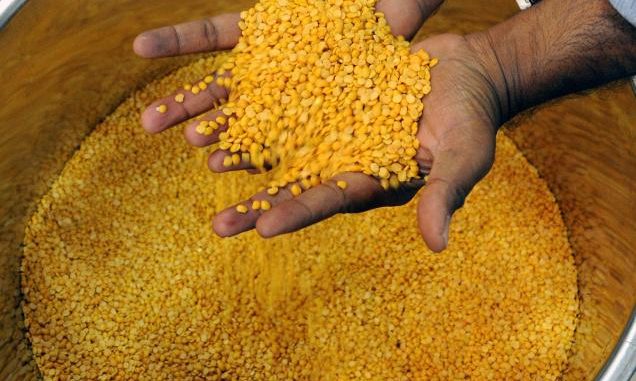
With global prices of agricultural commodities declining sharply in the last few years, often below domestic prices in India and other countries, concerns have been raised about likely volatility in the next few years. Shenggen Fan, director general, International Food Policy Research Institute (IFPRI), spoke to FE’s Sandip Das on issues concerning the agriculture sector in India.
What is your view on the current global prices of agricultural commodities and their impact on countries like India?
Global food prices have come down dramatically since 2007-8. But there are several caveats. Amongst all food items, only the prices of rice, wheat and maize have come down. For other nutritious foods such as fruits, vegetables and pulses, prices have not fallen. Another caveat is that in countries such as China and India, domestic food prices have gone up. This is because of protection given to the farm sector by these countries; otherwise we would have seen similar prices all over the world. The prices of pork in China and pulses in India have increased significantly during the last few years due to the gap between supply and demand.
What is to be done to deal with such aberrations in domestic and global prices?
It is policy failure. The subsidy regime of providing support to only rice and wheat has not helped in increasing pulses production, especially in India. The option is to convert these subsidies to income subsidies. Provide subsidies to farmers directly instead of providing it through cheaper water, electricity and fertilisers. Direct payment of subsidies to farmers would lead to increase in output. If we reduce or remove these subsidies, we can use that money for agricultural research. This would lead to higher production of nutritious food such as fruits, vegetables, milk and pulses. Subsidies on water, electricity and fertilisers lead to overuse or excessive use, leading to adverse environmental impact. By reorienting the subsidies, the food system would be more efficient. This would also result in production of sustainable food products and help small holders.
What is your view on crop insurance? The Indian government has launched a new scheme recently.
Crop insurance needs lots of subsidies. Without subsidies, crop insurance does not work, because private players find its too risky to invest. Most of the agricultural insurances are heavily subsidised by the government. Combine crop insurance with microfinance and other social protection schemes. Combine asset insurance like house, vehicles etc with crop insurance, which would make the private sector to invest in it. We should ensure that money is not wasted in insurance, otherwise crop insurance can be a liability. We need to innovate and evolve a mechanism for crop insurance. Besides, there is a need to create an institution for implementing and monitoring crop insurance.
As IFPRI’s focus in India has been to do research on pulses, how do you assess situations where domestic prices of many pulses have seen a sharp rise?
The consumption of pulses is a good thing as it helps the environment, because of the nature of the crop. Especially in a country like India, where a chunk of people are vegetarian, there should be more pulses production. But the government needs to fix a couple of things. First, the investment in research and development for new pulses varieties. Second, the issue is about the need to develop a market mechanism, so that transaction costs between producers and consumers are reduced. And lastly, the global markets where the country needs to source its pulses. India has a great potential to produce more pulses. The issue is, if India does not respond to the long-term shortage, the other country would respond. The country needs to invest in production, processing, quality control.
What would you suggest to the Indian government, which is reluctant on approving more genetically-modified (GM) crops?
In India, the approach for approval of GM crops is not science-based, and you do not have a regulatory mechanism to deal with the issue. The approach towards GM crops should be based on science, not on politics. One interesting fact is that many of these GM varieties are developed by public sector institutions, like Bt brinjal and Bt mustard. GM crop approval has to be evidence- and science-based, along with a robust regulatory mechanism.
Source:The Financial Express

Leave a Reply